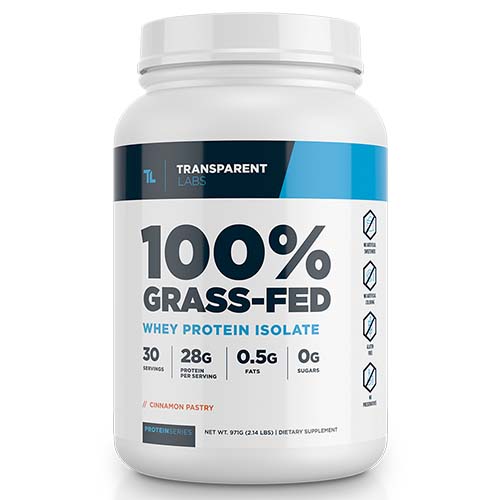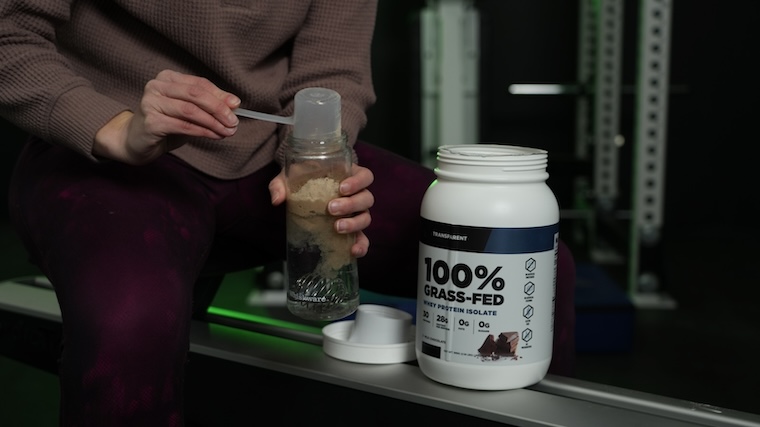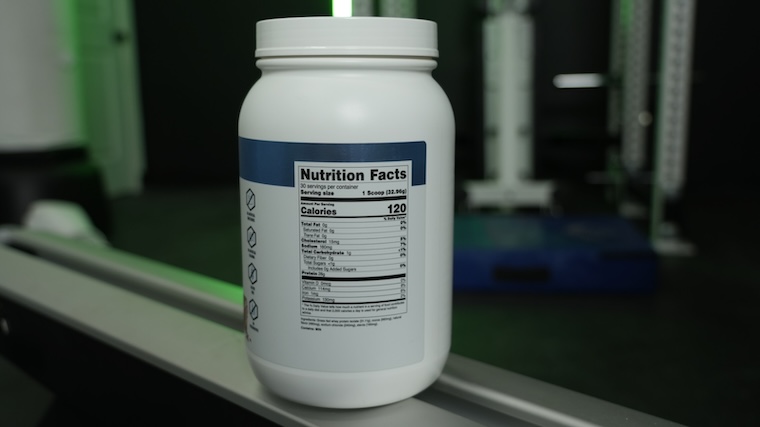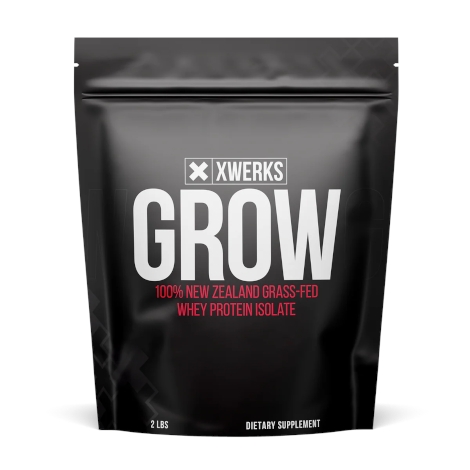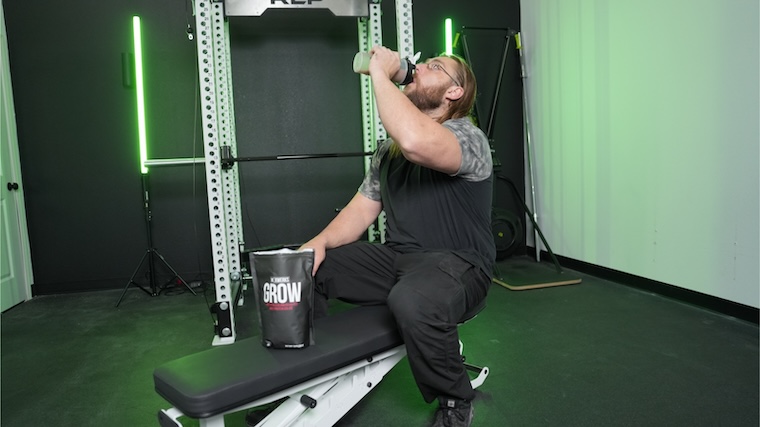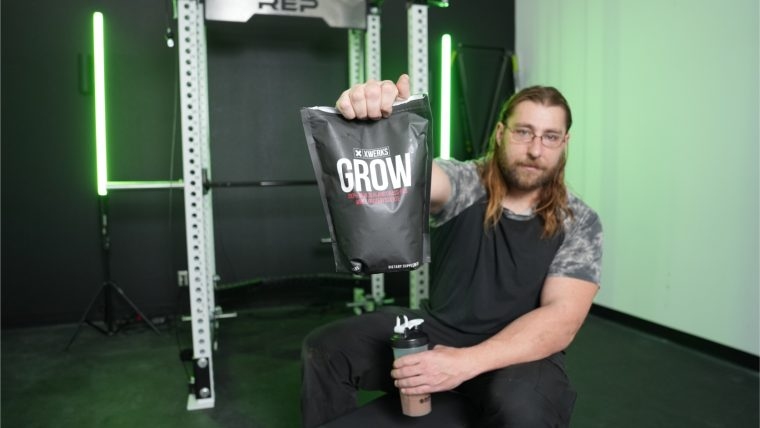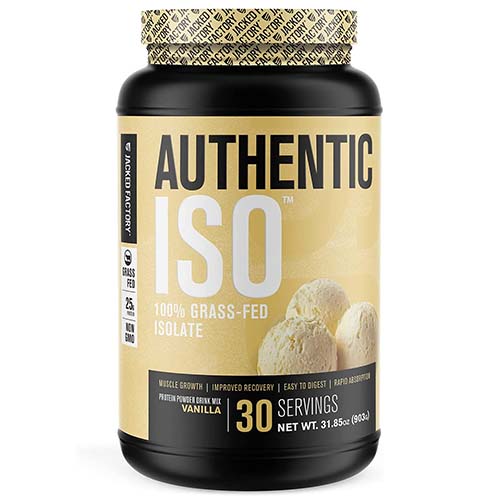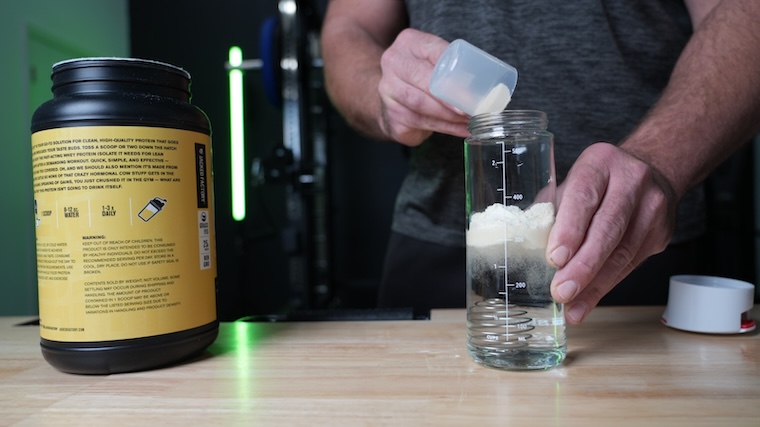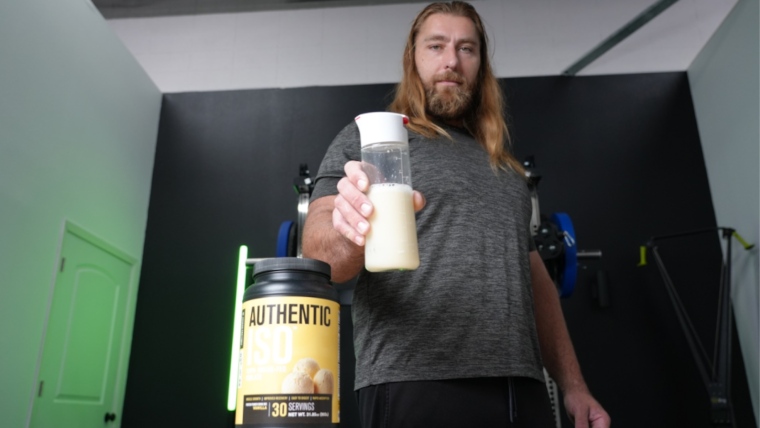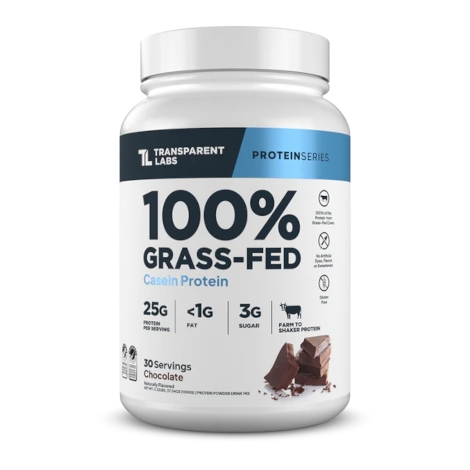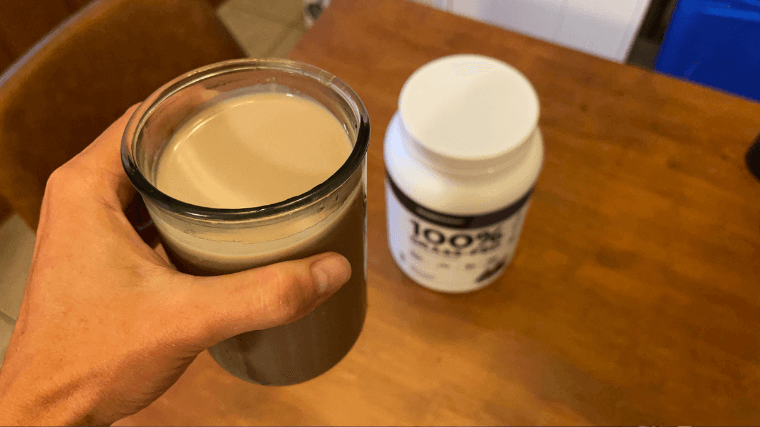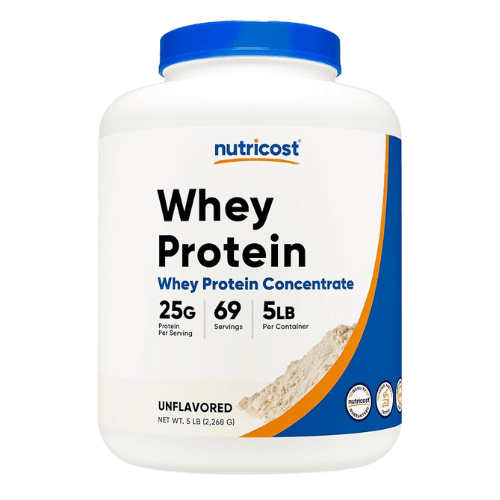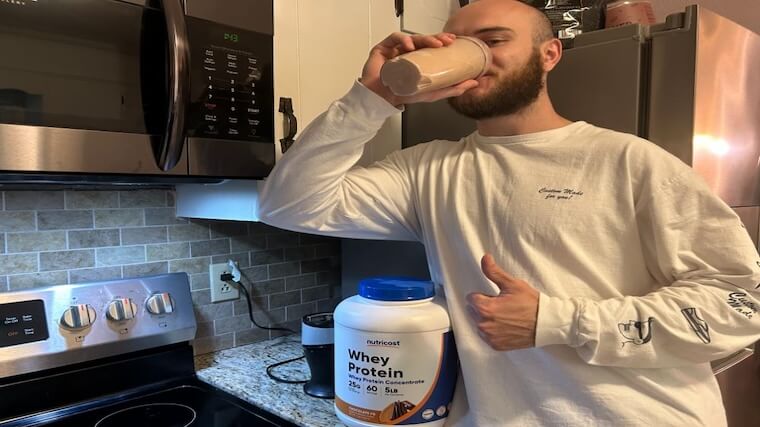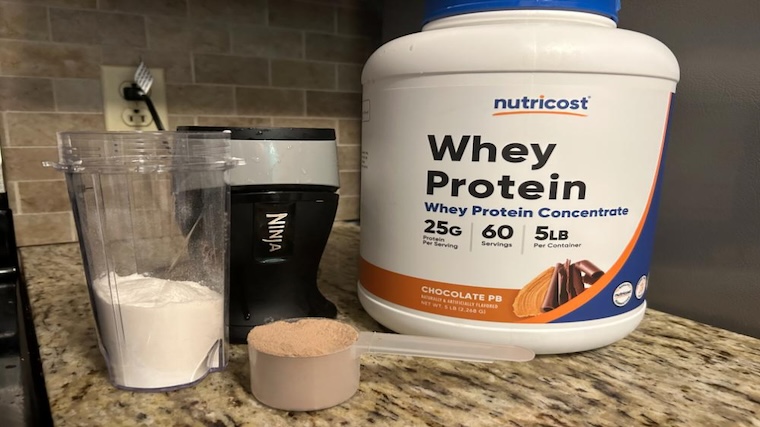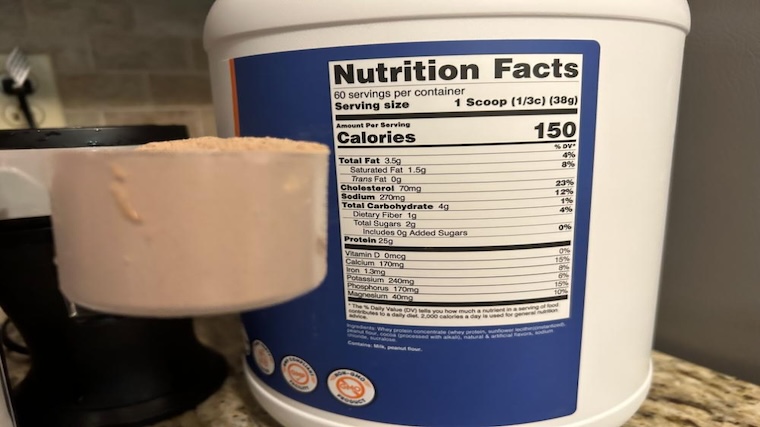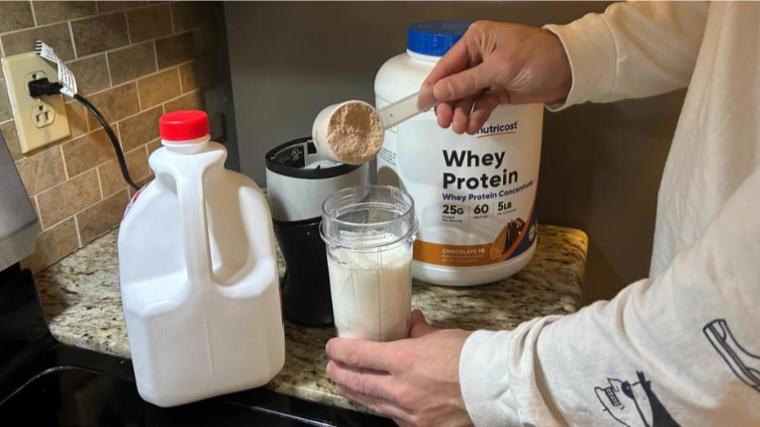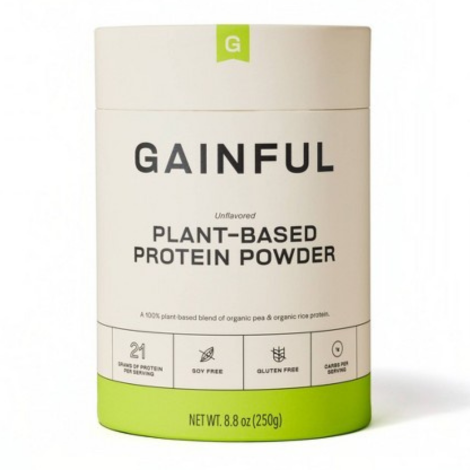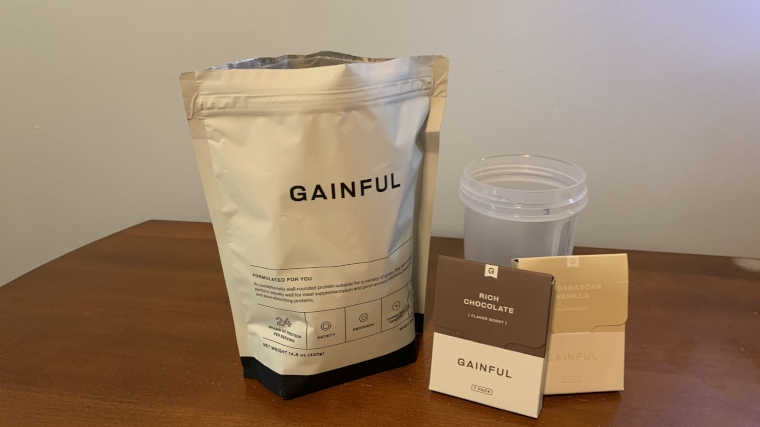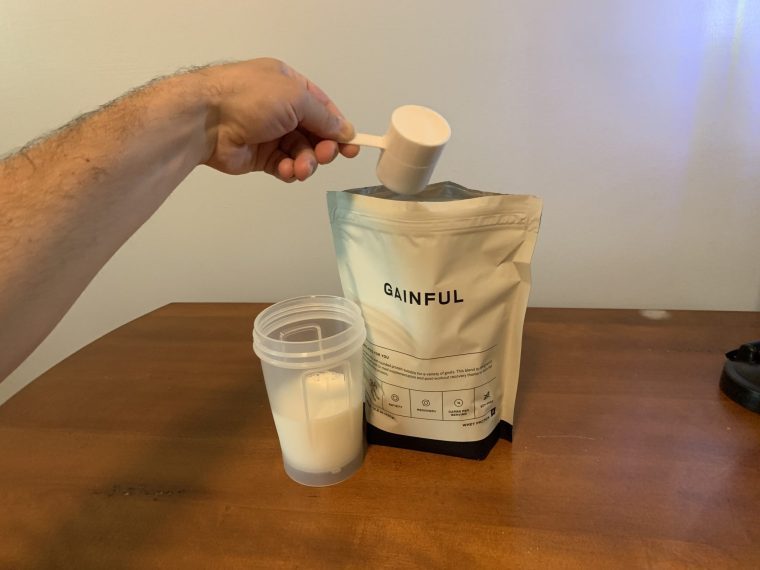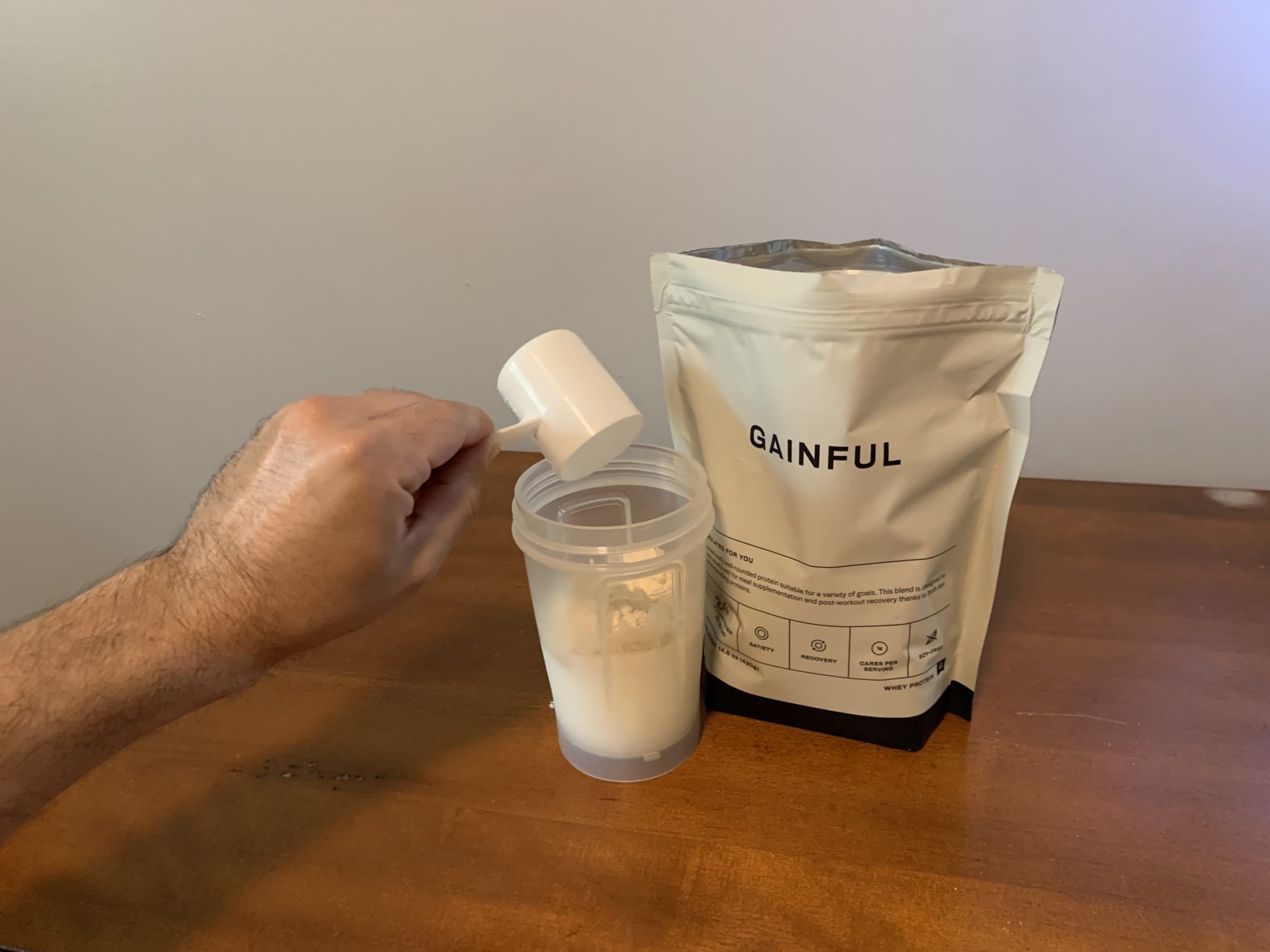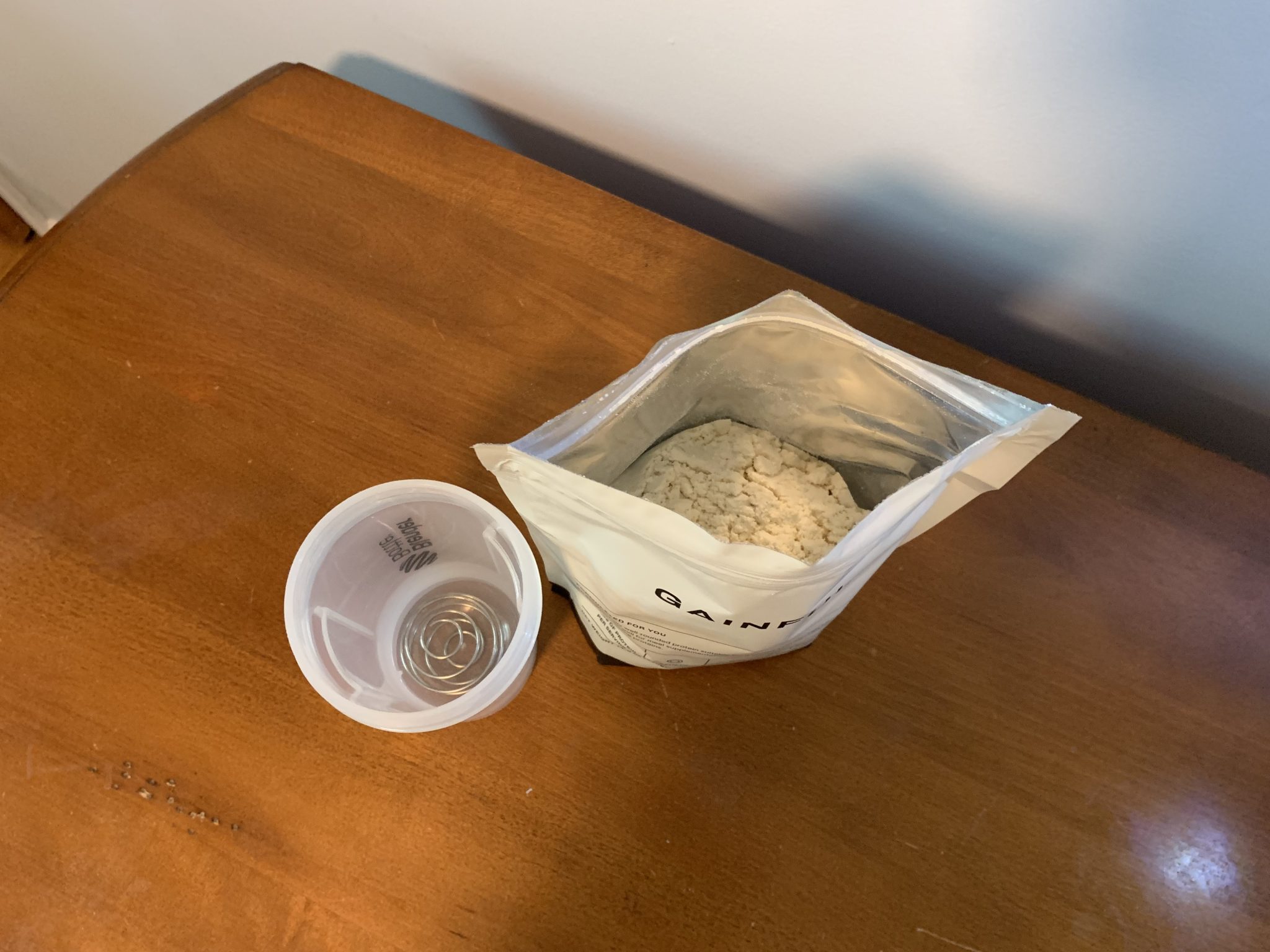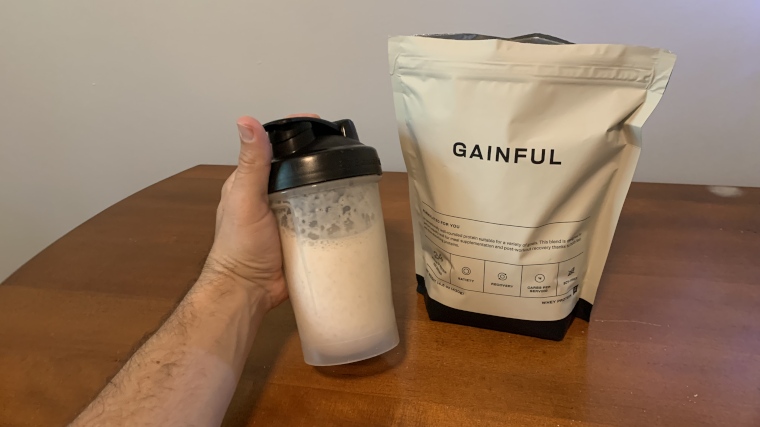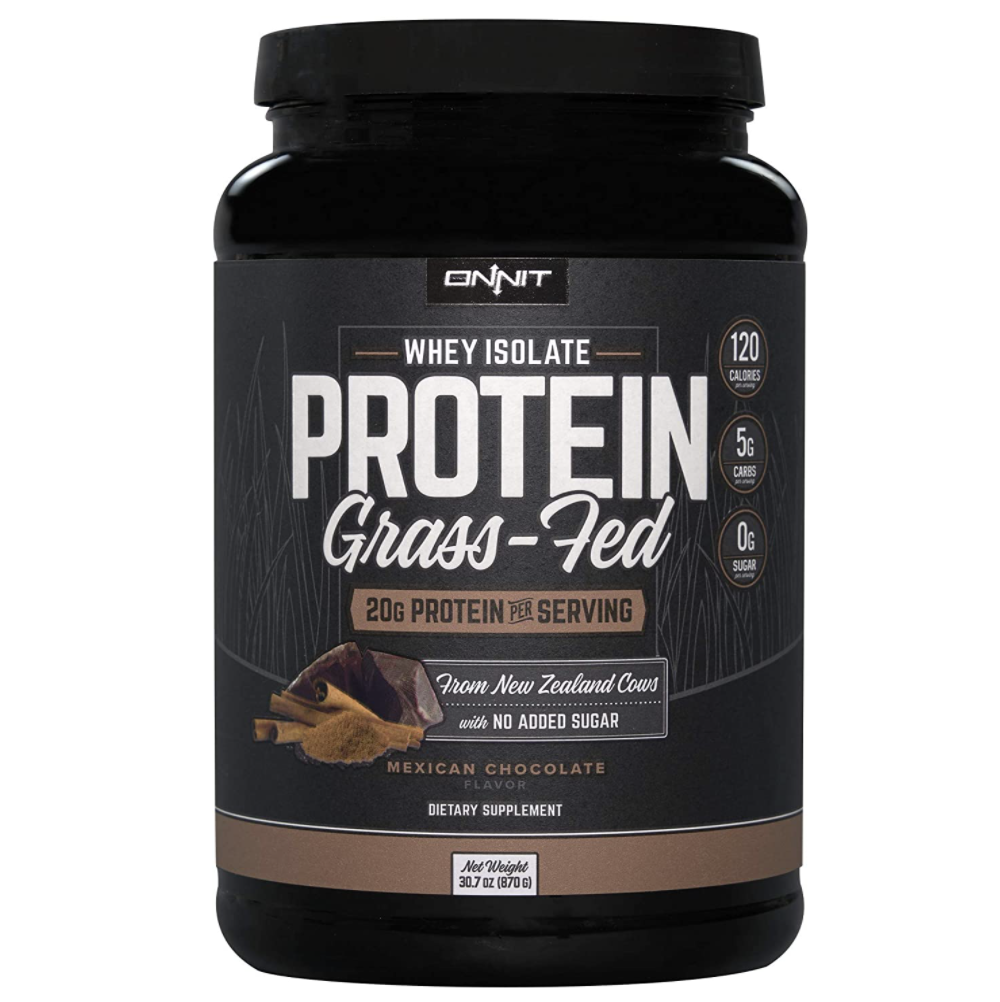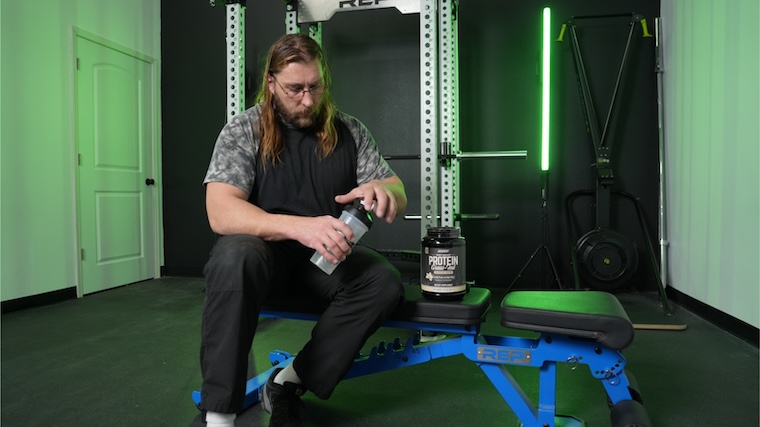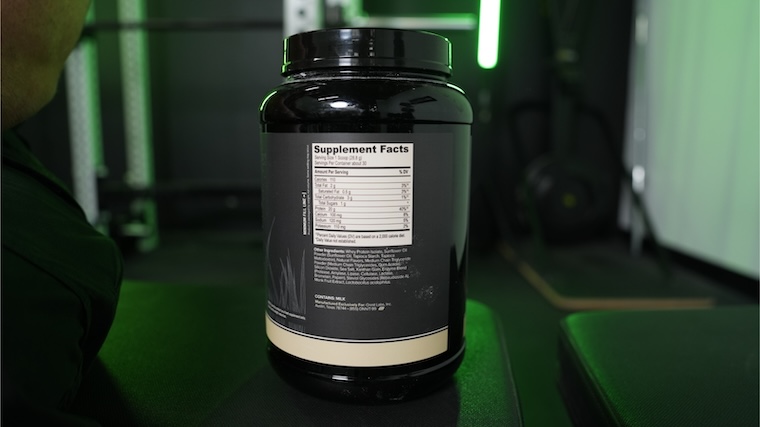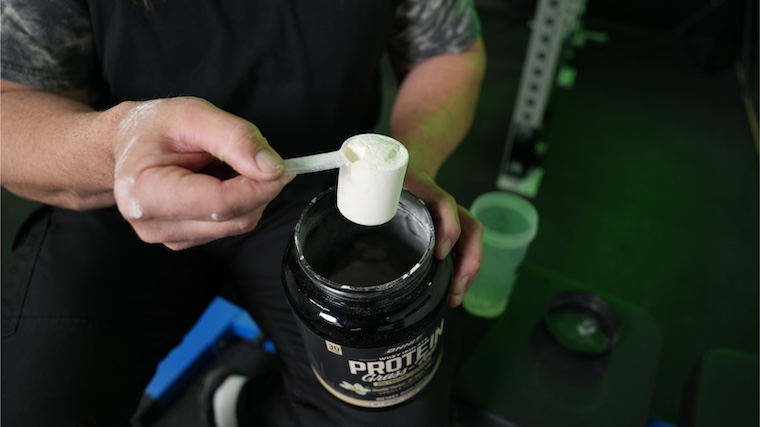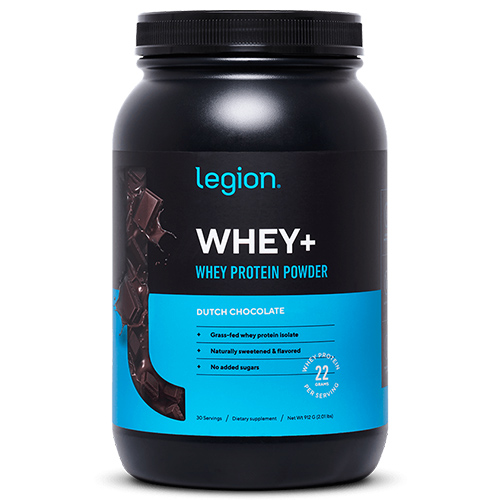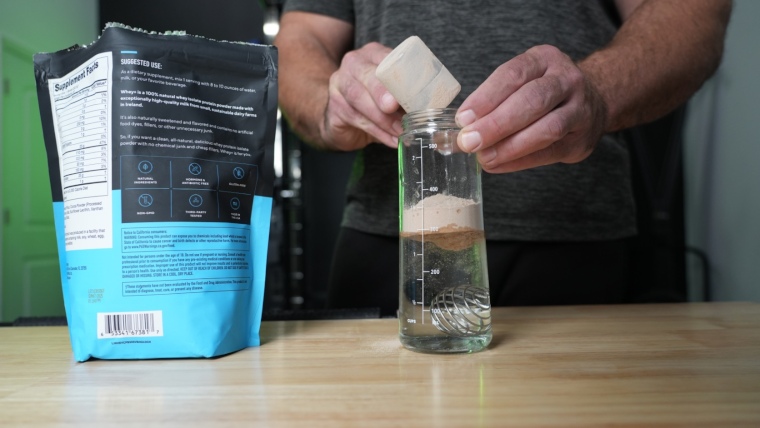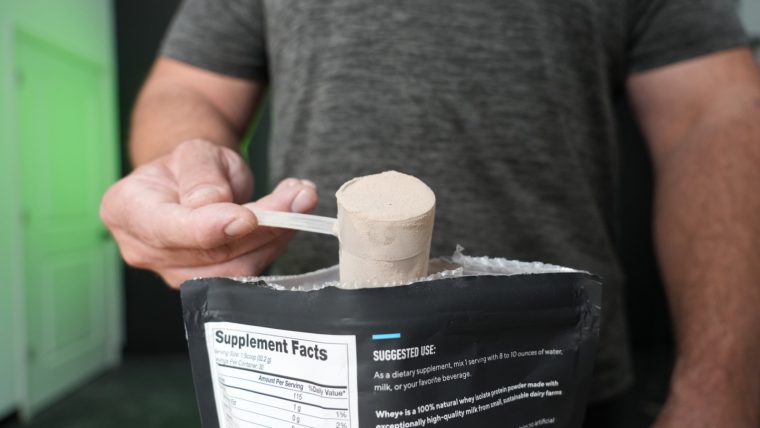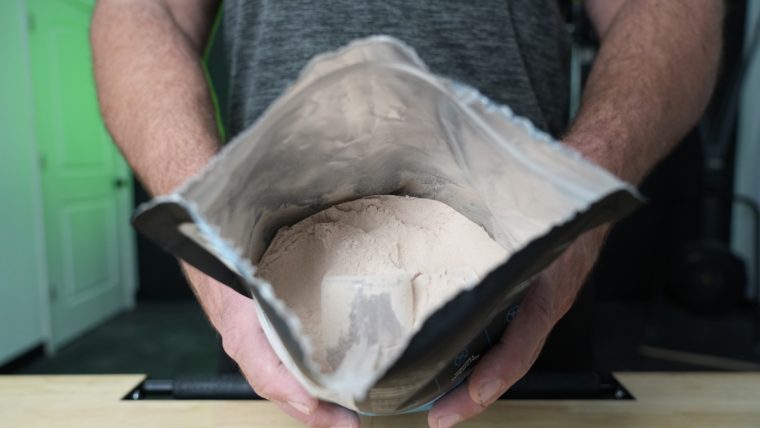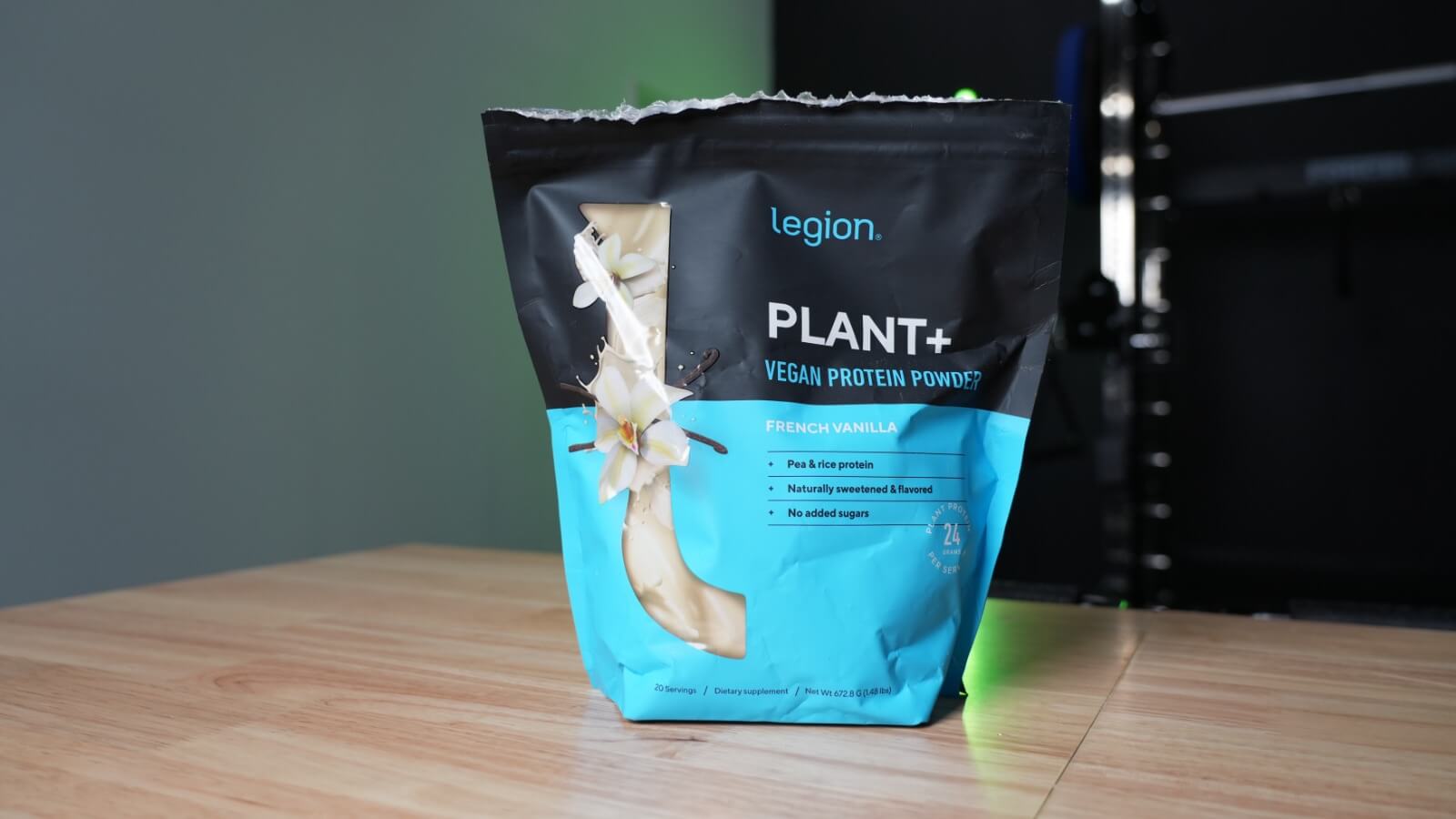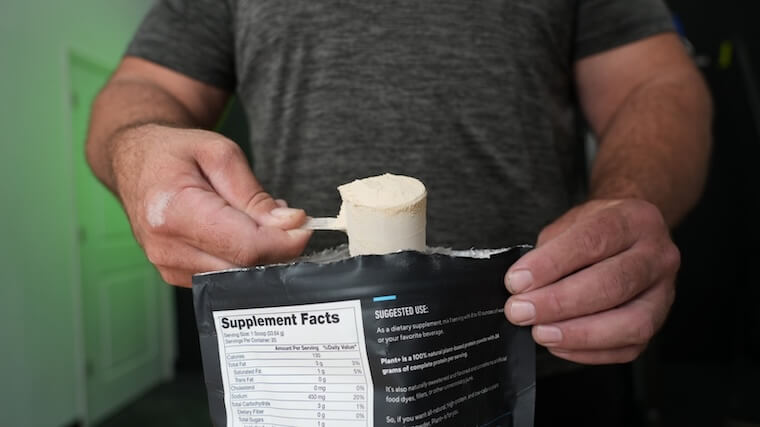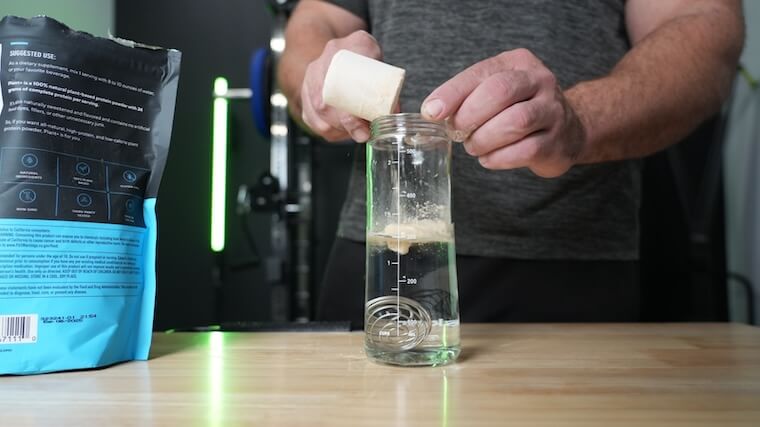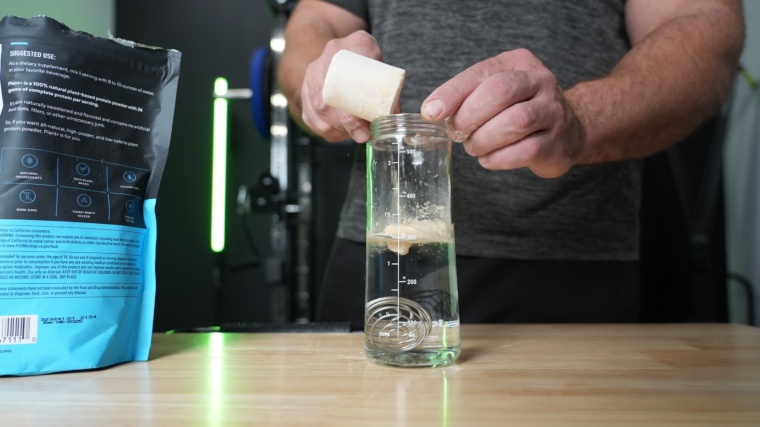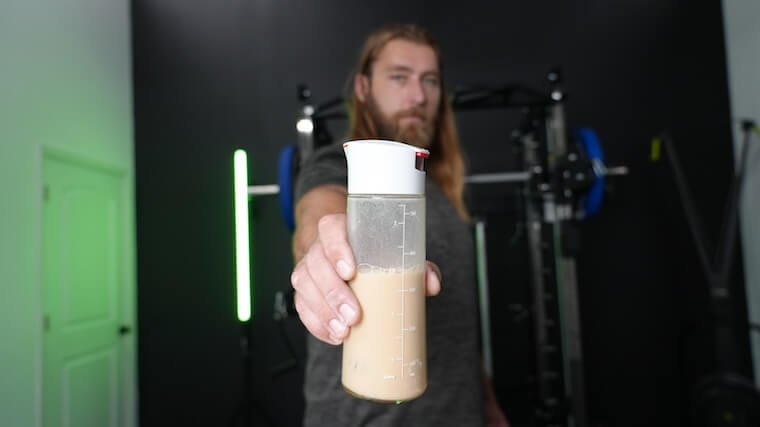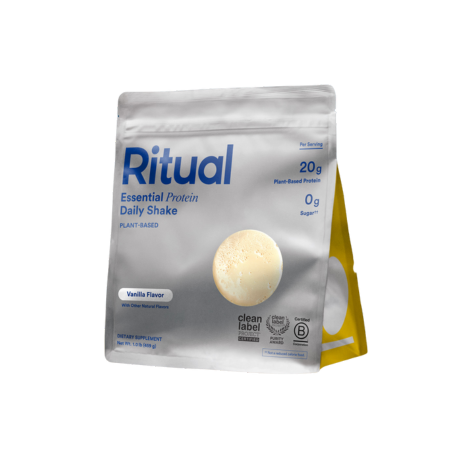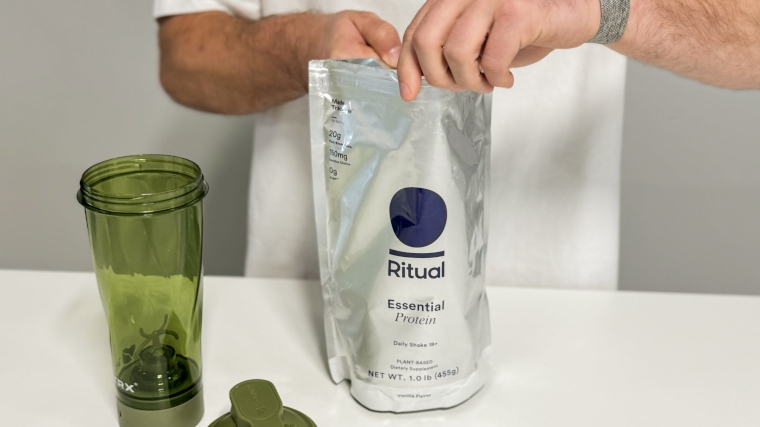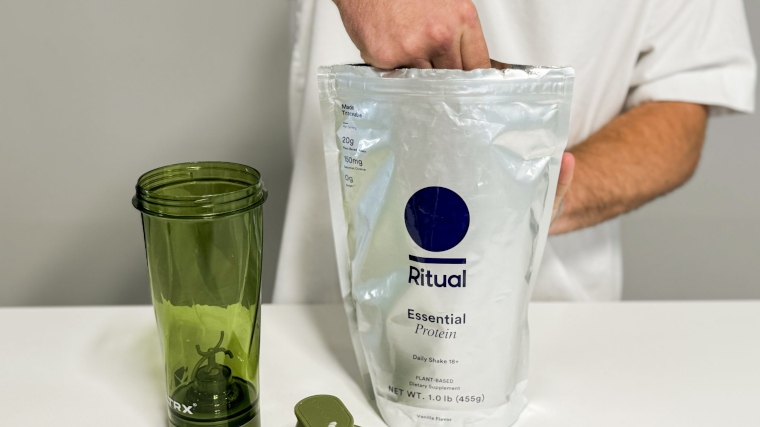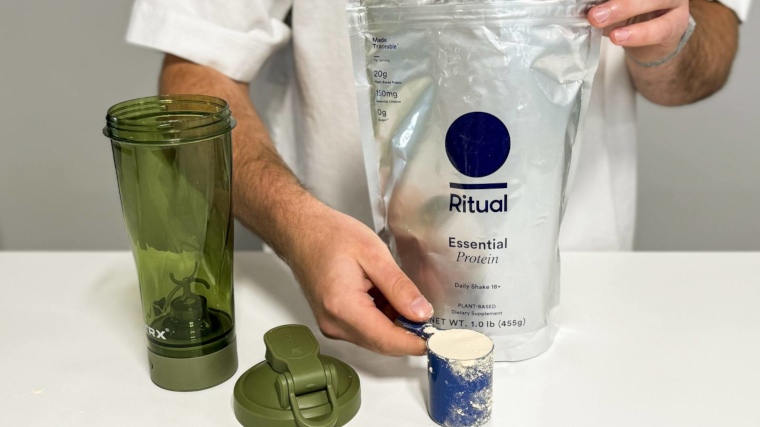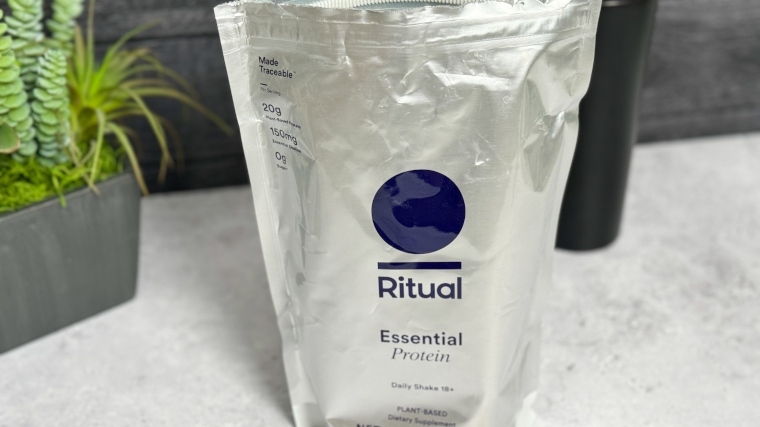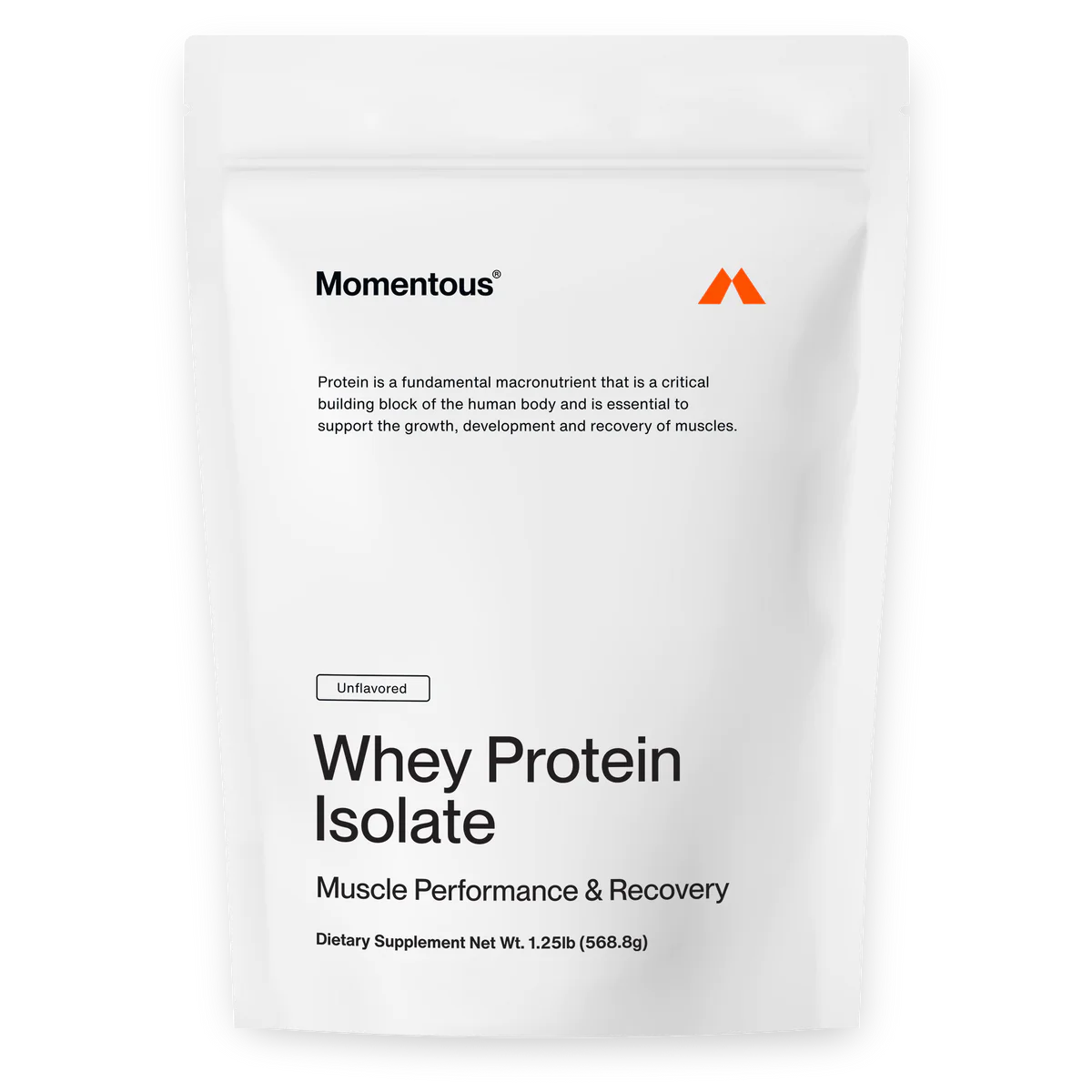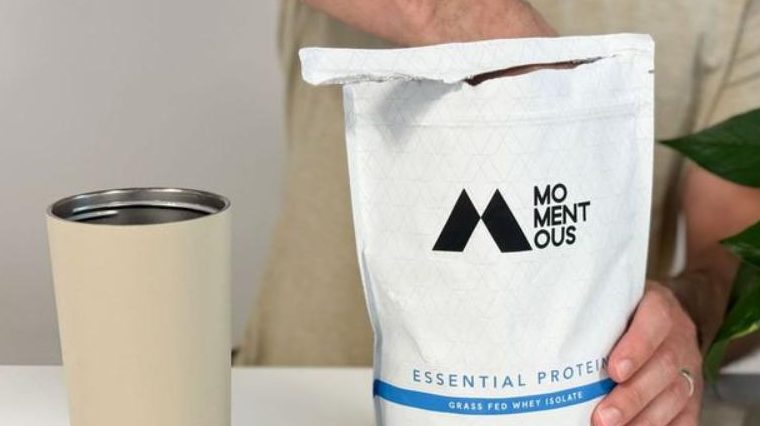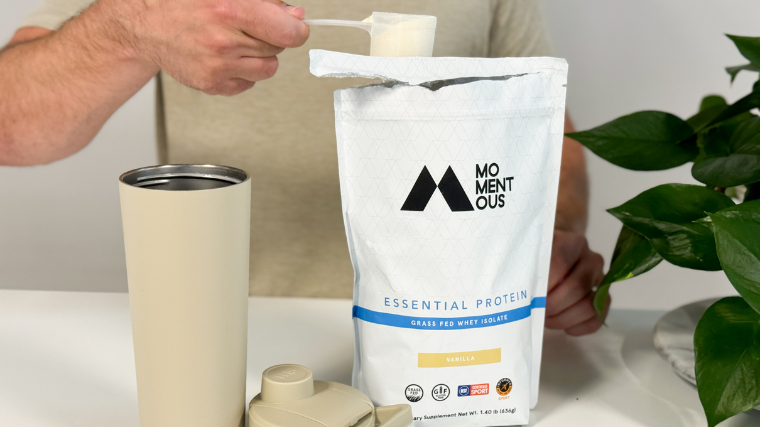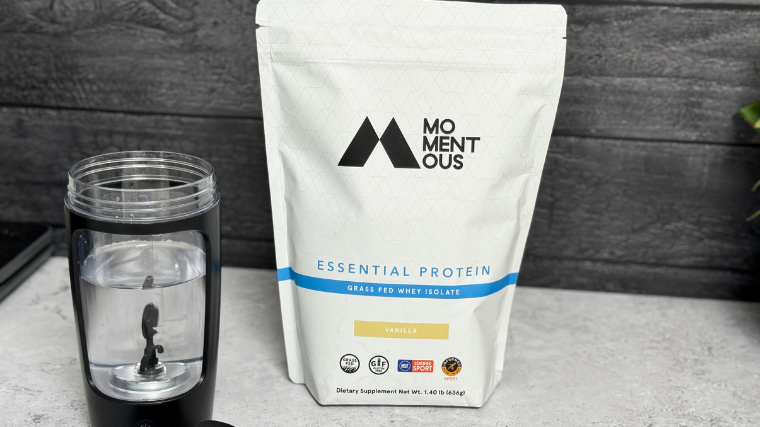Let’s set the record straight: There’s no gender bias when it comes to choosing the best protein powder for your needs. That said, studies indicate that men typically require a higher intake of protein (especially if they train regularly). (1) Because men generally have more body mass and a higher weight, they require more energy overall, including more of each macronutrient. However, the evidence does not support gender differences in overall macronutrient ratios.
The best protein powders for men can help male-identifying athletes hit their daily protein goals while also assisting in building muscle, maintaining satiety, and developing lean muscle mass. To choose the best ones, we’ve drawn upon decades of peer-reviewed scientific literature, input from registered dietitians, and our personal testing experiences with more than 100 of the top options on the market. Using our supplement testing methodology, we’ve rated and examined top-performing powders in categories such as:
- Ingredients List: Is the formulation well-rounded without any proprietary blends or artificial additives? Are any present allergens clearly listed for those with specific sensitivities?
- Protein Per Serving: How much protein is in each scoop? Is this enough protein to support different dietary needs and fitness goals?
- Taste: While subjective from one athlete to the next, how does the protein powder taste? Are there a range of flavors, or are you limited to just a handful of options?
- Third-Party Testing: Is the formulation independently tested for label accuracy and banned substances? Is the accrediting lab a well-established organization, such as Informed Sport or NSF?
- Price Per Serving: Does the taste and makeup of the powder justify the cost? Does the brand offer discounts for bulk orders or subscribe-and-save memberships?
The BarBend team has helped connect over 1.6 million athletes with high-quality dietary supplements to help fuel their performance and fitness progress. If you’re in need of a new protein powder to supplement your daily health, we’re confident that the following details can help place you on the right path.
The 10 Best Protein Powders for Men of 2026
- Best Protein Powder for Men Overall: Transparent Labs Whey Protein Isolate
- Best Tasting Protein Powder for Men: XWERKS Grow
- Best Protein Powder for Male Athletes: Jacked Factory Authentic ISO
- Best Casein Protein Powder for Men: Transparent Labs Casein Protein
- Best Budget Protein Powder for Men: Nutricost Whey Protein Powder
- Best Vegan Protein Powder for Men: Gainful Vegan Protein
- Best Protein Powder for Muscle Gain: Onnit Grass-Fed Whey Protein
- Best Whey Protein Powder for Men: Legion Whey+
- Best Organic Protein Powder for Men: Ritual Essential Daily Shake
- Best Protein Powder for Men for Weight Loss: Momentous Grass Fed Whey Protein
Editor’s note: The content on BarBend is meant to be informative in nature, but it should not be taken as medical advice. The opinions and articles on this site are not intended for the diagnosis, prevention, and/or treatment of health problems. It’s always a good idea to talk to your doctor before beginning a new fitness, nutritional, and/or supplement routine.
Compare the Best Protein Powders for Men
| Product | Type | Protein per Serving (g) | Calories per Serving | Price per Serving ($) |
| Transparent Labs Whey Protein Isolate | Whey Isolate | 28 | 120-150 | 2.00 |
| XWERKS Grow | Whey Isolate | 25 | 110 | 1.83 |
| Jacked Factory Authentic ISO | Whey Isolate | 25 | 100 | 1.50 |
| Transparent Labs Casein Protein | Casein | 25 | 120 | 2.00 |
| Nutricost Whey Protein Powder | Whey | 30 | 130 | 0.87 |
| Gainful Vegan Protein | Vegan | 20 | 110 | 2.00 |
| Onnit Grass-Fed Whey Protein | Whey | 20 | 110 | 2.00 |
| Legion Whey+ | Whey Isolate | 22 | 120 | 1.99 |
| Ritual Essential Daily Shake | Vegan | 20 | 115 | 2.67 |
| Momentous Grass Fed Whey Protein | Whey | 20 | 100 | 2.60 |
The Best Protein Powders for Men Video Review
Join BarBend expert reviewer Jake Herod, NASM-CNC, and registered dietitian nutritionist Chelsea Rae Bourgeois, MS, RDN, LD, as they detail our picks for the best protein powders for men, which include options for digestion, weight loss, and muscle gain.
Best Protein Powder for Men Overall: Transparent Labs Whey Protein Isolate
Best Tasting Protein Powder for Men: XWERKS Grow
Best Protein Powder for Male Athletes: Jacked Factory Authentic ISO
Best Casein Protein Powder for Men: Transparent Labs Casein Protein
Best Budget Protein Powder for Men: Nutricost Whey Protein Concentrate
Best Vegan Protein Powder for Men: Gainful Everyday Plant Protein
Gainful Plant-Based Protein Powder offers 23 grams of organic brown rice and pea protein, which delivers a complete amino acid profile. Plus, available flavor packs help craft a unique menu across your weekly supplement schedule.
Best Protein Powder for Muscle Gain: Onnit Grass-Fed Whey Protein
Best Whey Protein Powder for Men: Legion Whey+
Legion’s Plant+ has 25 grams of protein per serving, just four grams of carbs, and is packed with vitamins and minerals that plant-based eaters may want more of.
Best Organic Protein Powder for Men: Ritual Essential Daily Shake
Best Protein Powder for Men for Weight Loss: Momentous Grass Fed Whey Protein
How We Tested and Chose the Best Protein Powders for Men
The BarBend team is made up of competitive athletes, certified personal trainers, and lifelong fitness enthusiasts. For this guide, we gathered our testing notes from 104 different protein powders, narrowing down our findings to the best formulations specifically for male athletes.
Using our BarBend‘s supplement testing methodology, we gave each chosen protein powder a rating between 1 (lowest) and 5 (highest) for categories such as ingredients, taste, solubility, side effects, and more. Below are some additional details on how we came to our ratings and conclusions for each tested protein powder.
- Protein Type: We took into consideration all types of dietary needs, including those with digestive issues and plant-based preferences. That said, the majority of our picks utilize whey protein isolate. While slightly more expensive than other options, this type of protein undergoes further processing to help reduce the amount of carbohydrates, fat, and lactose per serving.
- Protein Content: Two of the most common goals for men are either acquiring more muscle mass or maintaining it while on a cut, both of which require anywhere between 0.5 to 0.8 grams of protein per pound of body weight. (11) To make sure that men got the most out of each serving, we looked for protein powders that had at least 20 grams of protein per serving and gave preference to powders with higher dosages, typically above 24 grams.
- Taste: If you have to choke down a protein powder every time you take it, the odds are it’ll spend more time gathering dust in your pantry than putting muscle on your frame. Fortunately, it seems like every year, there are more and more new and interesting flavors available. We tried to pick protein powders that not only did the classics (like Chocolate and Vanilla) justice, but also thought outside the box with flavors like Fruity Cereal, Strawberry Cheesecake, and Blueberry Muffin, to name a few.
- Solubility and Mixability: Just like taste, the texture or solubility can impact your enjoyment of the protein drink. We rated each protein powder on how well it mixed into different liquids, as well as with the method of mixing. We tried everything from using a shaker bottle to using an electric blender for a protein smoothie.
- Calories and Macros: We prioritized protein powders that had the fewest amount of carbohydrates and fats to make it easier for men to eat more protein to hit their daily macros. As a result, we tried to include several options with roughly 100 to 120 calories per serving, so they won’t take a huge bite out of your daily calorie count.
- Side Effects: Whether it’s due to natural ingredients like whey or artificial sweeteners like sucralose, protein powders have the potential to cause gastrointestinal distress for certain users, among other issues. We paid close attention to any side effects that popped up after using these powders and tried to point out the ingredients that might have caused the issues.
- Price: Not all protein powders are created equal when it comes to the cost per serving. Some products come in on the higher end of this spectrum and are worth every penny, while other options at the same price point don’t pack the same nutritional punch. Same goes for budget options — there’s a big difference between products that offer a great value and those that sacrifice quality to meet a certain price point. We gave heavy consideration to the price of each product and weighed whether or not the quality measured up.
Benefits of Protein Powders for Men
Since men tend to have bigger bodies and more muscle mass than women, they require more protein in their diets than women do. This goes doubly for men who work out, which is probably why male customers account for 70% of all protein supplements sold. (15) Besides being a nutritional requirement, supplementing with protein powders has plenty of additional benefits, including satiety, muscle growth, and convenience.
- Satiety: “Protein can be very satiating and can help you control your daily caloric intake when used appropriately as part of a supplement routine,” notes Dr. Christopher Mohr, PhD, RD.This may be in part because it can influence hormones that send signals that you’re full. (13) There is also emerging evidence that hunger is driven by our need for protein and specific amino acids. (16)
- Muscle Gain: Protein powder alone won’t put on muscle, but studies have shown that when added to resistance and endurance training, supplementing with protein can help men increase their strength and muscle mass. (17) In these studies, it was suggested that taking a protein supplement after a workout can be an effective way to rebuild the muscle that you break down during a workout, helping your body adapt to the increased load with (you guessed it) bigger and stronger muscles.
- Muscle Growth: Protein powders are also a great way to increase protein intake to meet the needs of muscle growth, which can be as high as 3-4 grams per kilogram of body weight. (18) Eating that much chicken can be a bit cumbersome, so a great-tasting protein powder can help.
- Convenience: Sometimes a guy just doesn’t have time to cook up a few dozen chicken breasts for the week (and high-protein fast food is just out of the question). Protein powders are a convenient way to squeeze another 20 to 30 grams of protein into a busy day. Mixing up a protein shake and downing it only takes a few minutes and provides a nice (and hopefully tasty) reprieve from trying to cram in whole-food-sourced protein all day long.
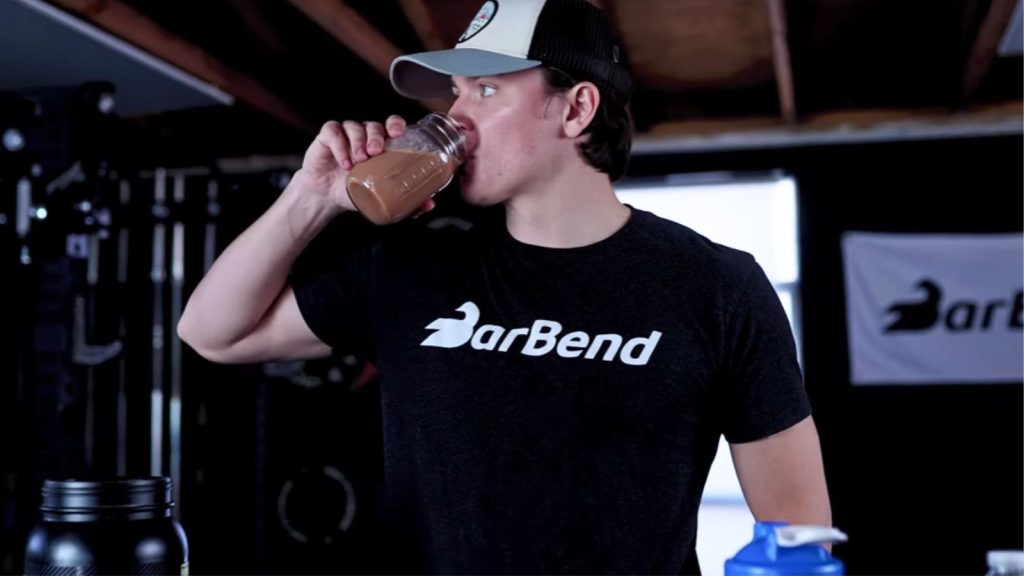
Types of Protein Powder for Men
Sometimes, it seems like you need a degree in advanced chemistry to know the difference between the types of protein out there. Is there a best type of protein powder for men? Not really … it ultimately depends on your fitness goals, plus any dietary needs or restrictions you might have.
Here’s a quick primer on the types of protein available to help you tell your isolates from your hydrolysates.
Whey
Whey is derived from milk during the cheesemaking process. Because whey protein is liquid in its natural form, it’s absorbed in the body faster than other protein powders, making it great for a post-workout shake. There are three types of whey protein — whey concentrate, isolate, and hydrolysate:
- Whey Concentrate: The most common and often the most affordable form of whey protein, concentrates are the least refined type of whey protein. They generally contain 60% to 80% protein, with carbohydrates and fats making up the rest of the powder.
- Whey Isolate: Whey isolates are refined more than concentrates, as they undergo a process that removes more fat and carbohydrates from the supplement. This type of powder is usually made up of 90% to 95% protein. It also removes most of the lactose, which may make isolates easier on the stomach than whey concentrates.
- Whey Hydrolysate: This protein takes the refinement even further, breaking down the bonds between the amino acids. The result is a protein that may be absorbed more quickly by your body (and, as a result, your muscles). While hydrolysates are the most refined form of whey protein, they can also be prohibitively expensive, which is why many men lean more towards concentrates or isolates.
Casein
Like whey, casein is a protein found in milk, but unlike whey, it forms a gel when it contacts stomach acid, which slows down its absorption into your bloodstream. This can be beneficial for men who are cutting and want to stay satiated longer. It can also be ideal for men who are trying to put on muscle mass. Taking a scoop of casein before bed can deliver a slow, steady drip of protein while you sleep, which is when the majority of muscle building occurs. (12)(19)(20) If you want to go with a casein protein, check out our recommendations for the best casein protein powders.
Pea Protein and Other Plant Proteins
Pea Protein is a great option for men who avoid animal products or those following a more restricted diet plan, such as veganism. Often, you’ll find it blended with other sources of plant protein like quinoa, pumpkin seed protein, and brown rice protein. (22)
Speaking of other plant proteins, you can find additional plant protein powders on the market sourced from soy, hemp, or chia seed.
Egg Protein
Like the name suggests, egg protein is derived from eggs. It can be a good alternative to whey and casein if you can’t drink dairy. Be warned, though — egg protein powder often has a less-than-desirable taste and smell to it, making it more suited for cooking-based recipes rather than a standalone beverage.
What to Consider Before Buying Protein Powders for Men
As we’ve said before, there are a lot of types of protein powder available, but dialing in the best one for men depends greatly on the individual. When you’re shopping for protein powder, consider factors like protein content, dietary restrictions, and taste preference.
Dietary Restrictions
A good portion of protein powders come from milk, so if you’re sensitive or intolerant to lactose, you may want to tread carefully. If you have a sensitivity to milk, you may be able to get away with taking whey isolate, which has almost all of the lactose removed.
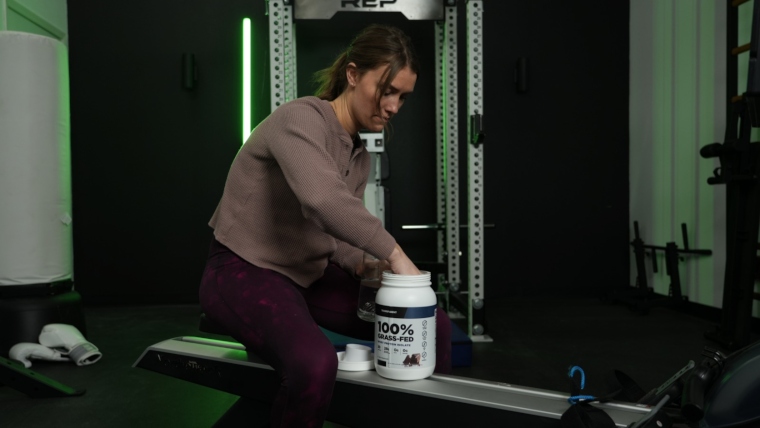
If the thought of a bowl of ice cream sends you running to the nearest bathroom, however, you’re better off looking for a whey hydrolysate or plant-based protein powder.
Protein Content
If you’re looking for more protein, you’re going to want to find a powder that serves at least 20 grams. Since most fall within the 20- to 25-gram range, it shouldn’t be difficult to find one that works for you. But make sure you read the nutritional information on whatever protein you’re considering, as some protein powders can contain as little as 10 to 15 grams per serving.
Protein Type
It’s important to understand the different types of protein powders before making your purchase. For example, if you want a slow-digesting protein to take you through a long work day or help keep you full at night, you might want to go with a casein protein powder. This type of protein can support the muscle-building process while you sleep or during periods of fasting.
Flavor Options
If taste isn’t a factor, more power to you. But there’s nothing wrong with a protein powder that offers you a little treat in the middle of your day. In addition to the classic chocolate and vanilla offerings, keep an eye out for fun flavors like Cinnamon French Toast or Blueberry Muffin. After all, you’re more likely to drink a protein shake that you like than one that you have to choke down.
Fitness Goals
The reasons we all go to the gym vary; some want to lose weight, others want to gain muscle or strength, and even then, some of us just enjoy the routine. Protein powder can certainly help you achieve your fitness goals, but the formulation of one protein powder may help better than others.
For example, if your goal is to lose some fat while maintaining muscle mass, a lower-calorie whey isolate might be a good choice. However, for building muscle, you may want a higher protein and calorie content.
Third-Party Testing
The FDA doesn’t closely regulate what ingredients are in a supplement, so you’ll want to look for brands that present plenty of transparency with their ingredients. The most reputable brands will clearly state when products have undergone third-party testing to ensure that they are safe, effective, and free from banned substances. Look for third-party tested certifications from Informed Choice, Informed Sport, or others on a product’s packaging.
Ingredients For Men To Pay Attention To
There are plenty of protein powders on the market today — but they’re not all equal. Some may have filler ingredients, added sugars, or just some components you may want to avoid. Here are some ingredients to be aware of, and always check the nutrition and ingredients label to ensure you’re not ingesting anything you’re actually wanting to avoid.
Protein Source
We’ve covered this already in this article, but it doesn’t hurt to reiterate: Be mindful of the type of protein you’re consuming in your protein powder. Some people may need to pay attention to the protein source, due to dietary restrictions or allergies. People who follow a vegan lifestyle, or who have a dairy allergy, will need to steer clear of whey and casein, as well.
At the same time, many plant proteins lack all nine essential amino acids, making them incomplete proteins. Look for plant protein blends so that you ensure getting all your essential aminos in your protein drink.
Added Sugars and Sweeteners
To help with flavor and taste, many protein powders have added sweeteners within their respective makeups. People who are watching their sugar intake may want to avoid protein powders with added sugars, and opt, instead, for a natural sweetener like stevia or monk fruit. Another that some may want to avoid are artificial sweeteners like sucralose, which can cause gastrointestinal distress in some people. (2)
Heavy Metals
Several reviews and studies have found that protein powders can contain elevated amounts of heavy metals. (23) Heavy metal toxicity has been shown to have an adverse effect on human metabolic processes, which can increase the risk of various diseases. (24) Because of this, many consider it vital to take protein powder that has been third-party tested for purity. This will help minimize the risk of ingesting dangerous amounts of heavy metals.
Third-party testing is an added bonus for athletes, as it can help ensure that the protein powder is free from any banned substances or other contaminants.
Caffeine
While not in every protein powder, caffeine can be found in certain flavors — particularly coffee, cappuccino, or mocha flavors. If you have a sensitivity to caffeine, or if you’d rather not get an energy jolt from your protein shake, you may want to opt for a more traditional Vanilla or Chocolate flavor.
Best Protein Powder for Men FAQs
What is the best protein powder for men?
The perfect protein powder varies from person to person, but for our money, the best is Transparent Labs Whey Protein Powder thanks to its easy digestion and hefty 28-gram dose of protein per serving. We also appreciate that the formulation contains 130 milligrams of potassium, which may help men maintain lean muscle mass. (3)
Is protein powder good for men?
One or two protein shakes a day can be good for both men and women. It can help increase muscle strength and size when paired with exercise — plus, it can help you retain muscle mass in a caloric deficit. Additionally, protein powder can help increase feelings of satiety, which can help keep you from overeating throughout the day.
Do men need different protein powder than women?
No, men do not need different protein powder than women. (1) The biggest difference, however, is the amount of protein men need when compared to women. This is because men generally tend to weigh more than women. That said, the ratio of protein that men and women need relative to their body weight is the same.
Is leucine content important?
Leucine is one of the three essential branched-chain amino acids (BCAAs), with the others being isoleucine and valine. BCAAs are commonly referred to as the building blocks of protein and have been shown to help increase muscle mass. (7) Leucine content is important when purchasing a protein powder, so be sure to look for a brand that contains a complete amino acid profile.
References
- Elstgeest, L. E. M., Schaap, L. A., Heymans, M. W., Hengeveld, L. M., Naumann, E., Houston, D. K., Kritchevsky, S. B., Simonsick, E. M., Newman, A. B., Farsijani, S., Visser, M., Wijnhoven, H. A. H., & Health ABC Study (2020). Sex-and race-specific associations of protein intake with change in muscle mass and physical function in older adults: the Health, Aging, and Body Composition (Health ABC) Study. The American journal of clinical nutrition, 112(1), 84–95. https://doi.org/10.1093/ajcn/nqaa099
- Conz, A., Salmona, M., & Diomede, L. (2023). Effect of Non-Nutritive Sweeteners on the Gut Microbiota. Nutrients, 15(8), 1869. https://doi.org/10.3390/nu15081869
- Lee, Y. J., Lee, M., Wi, Y. M., Cho, S., & Kim, S. R. (2020). Potassium intake, skeletal muscle mass, and effect modification by sex: data from the 2008-2011 KNHANES. Nutrition journal, 19(1), 93. https://doi.org/10.1186/s12937-020-00614-z
- Aburto NJ, Hanson S, Gutierrez H, Hooper L, Elliott P, Cappuccio FP. Effect of increased potassium intake on cardiovascular risk factors and disease: systematic review and meta-analyses. BMJ. 2013;346:f1378. Published 2013 Apr 3. https://doi:10.1136/bmj.f1378
- Kasti AN, Nikolaki MD, Synodinou KD, et al. The Effects of Stevia Consumption on Gut Bacteria: Friend or Foe?. Microorganisms. 2022;10(4):744. Published 2022 Mar 30. https://doi:10.3390/microorganisms10040744
- Industries, M. for P. (n.d.). NZ Government. Ministry for Primary Industries. https://www.mpi.govt.nz/dmsdocument/46243-Operational-Code-NZCP1-Design-and-Operation-of-Farm-Dairies
- Doma K, Singh U, Boullosa D, Connor JD. The effect of branched-chain amino acid on muscle damage markers and performance following strenuous exercise: a systematic review and meta-analysis. Appl Physiol Nutr Metab. 2021;46(11):1303-1313. https://doi:10.1139/apnm-2021-0110
- Kim J. Pre-sleep casein protein ingestion: new paradigm in post-exercise recovery nutrition. Phys Act Nutr. 2020;24(2):6-10. https://doi:10.20463/pan.2020.0009
- Bendtsen LQ, Lorenzen JK, Bendsen NT, Rasmussen C, Astrup A. Effect of dairy proteins on appetite, energy expenditure, body weight, and composition: a review of the evidence from controlled clinical trials. Adv Nutr. 2013;4(4):418-438. Published 2013 Jul 1. https://doi:10.3945/an.113.003723
- Nunes EA, Colenso-Semple L, McKellar SR, et al. Systematic review and meta-analysis of protein intake to support muscle mass and function in healthy adults. J Cachexia Sarcopenia Muscle. 2022;13(2):795-810. https://doi:10.1002/jcsm.12922
- Jäger R, Kerksick CM, Campbell BI, et al. International Society of Sports Nutrition Position Stand: protein and exercise. J Int Soc Sports Nutr. 2017;14:20. Published 2017 Jun 20. https://doi:10.1186/s12970-017-0177-8
- Kim JY. Optimal Diet Strategies for Weight Loss and Weight Loss Maintenance. J Obes Metab Syndr. 2021;30(1):20-31. https://doi:10.7570/jomes20065
- Drummen, M., Tischmann, L., Gatta-Cherifi, B., Fogelholm, M., Raben, A., Adam, T. C., & Westerterp-Plantenga, M. S. (2020). High Compared with Moderate Protein Intake Reduces Adaptive Thermogenesis and Induces a Negative Energy Balance during Long-term Weight-Loss Maintenance in Participants with Prediabetes in the Postobese State: A PREVIEW Study. The Journal of nutrition, 150(3), 458–463. https://doi.org/10.1093/jn/nxz281
- Fan, Y., Wu, M., Li, X., Zhao, J., Shi, J., Ding, L., Jiang, H., Li, Z., Zhang, W., Ma, T., Wang, D., & Ma, L. (2024). Potassium levels and the risk of all-cause and cardiovascular mortality among patients with cardiovascular diseases: a meta-analysis of cohort studies. Nutrition journal, 23(1), 8. https://doi.org/10.1186/s12937-023-00888-z
- Alhakbany MA, Alzamil HA, Alnazzawi E, et al. Knowledge, Attitudes, and Use of Protein Supplements among Saudi Adults: Gender Differences. Healthcare (Basel). 2022;10(2):394. Published 2022 Feb 19. https://doi:10.3390/healthcare10020394
- Kohanmoo, A., Faghih, S., & Akhlaghi, M. (2020). Effect of short- and long-term protein consumption on appetite and appetite-regulating gastrointestinal hormones, a systematic review and meta-analysis of randomized controlled trials. Physiology & behavior, 226, 113123. https://doi.org/10.1016/j.physbeh.2020.113123
- Cintineo HP, Arent MA, Antonio J, Arent SM. Effects of Protein Supplementation on Performance and Recovery in Resistance and Endurance Training. Front Nutr. 2018;5:83. Published 2018 Sep 11. https://doi:10.3389/fnut.2018.00083
- Jäger, R., Kerksick, C.M., Campbell, B.I. et al. International Society of Sports Nutrition Position Stand: protein and exercise. J Int Soc Sports Nutr 14, 20 (2017). https://doi.org/10.1186/s12970-017-0177-8
- Boirie Y, Dangin M, Gachon P, Vasson MP, Maubois JL, Beaufrère B. Slow and fast dietary proteins differently modulate postprandial protein accretion. Proc Natl Acad Sci U S A. 1997;94(26):14930-14935. https://doi:10.1073/pnas.94.26.14930
- Dattilo M, Antunes HK, Medeiros A, et al. Sleep and muscle recovery: endocrinological and molecular basis for a new and promising hypothesis. Med Hypotheses. 2011;77(2):220-222. https://doi:10.1016/j.mehy.2011.04.017
- Ko GJ, Rhee CM, Kalantar-Zadeh K, Joshi S. The Effects of High-Protein Diets on Kidney Health and Longevity. J Am Soc Nephrol. 2020;31(8):1667-1679. https://doi:10.1681/ASN.2020010028
- Hertzler, S. R., Lieblein-Boff, J. C., Weiler, M., & Allgeier, C. (2020). Plant Proteins: Assessing Their Nutritional Quality and Effects on Health and Physical Function. Nutrients, 12(12), 3704. https://doi.org/10.3390/nu12123704
- Bandara, S. B., Towle, K. M., & Monnot, A. D. (2020). A human health risk assessment of heavy metal ingestion among consumers of protein powder supplements. Toxicology reports, 7, 1255–1262. https://doi.org/10.1016/j.toxrep.2020.08.001
- Fu, Z., & Xi, S. (2020). The effects of heavy metals on human metabolism. Toxicology mechanisms and methods, 30(3), 167–176. https://doi.org/10.1080/15376516.2019.1701594
